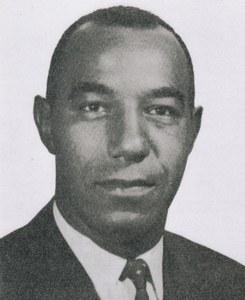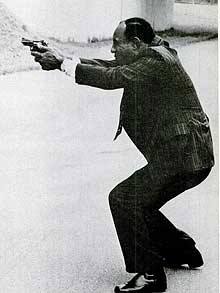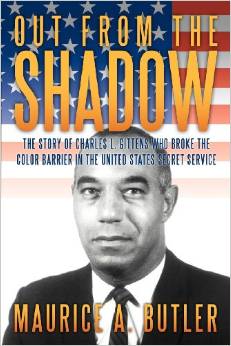
Happy Hump Day POU!
Today we feature the first buy viagra danmark black Secret Service Agent: Charles Gittens
Charles L. Gittens broke a color line in the US Secret Service in winter 1956, while the Montgomery, Ala., bus boycott was going on and as major lunch-counter sit-ins were years off.
The youngest of a family of three brothers and four sisters, Mr. Gittens graduated from Morse Grammar School and attended Cambridge High and Latin in Cambridge, Massachusetts before he dropped out in 1945 to join the war effort.
He tried to join the US Army in 1945 before he was 17, but he was turned away. He enlisted the following year and was stationed with occupation forces in Yokohama, Japan.
In the service, Mr. Gittens completed his high school education, then attended Officer Candidate School at Fort Riley, Kan. He rose to first lieutenant and was executive officer of a military police unit before he left the Army in 1952. He completed a bachelor of arts in three years at North Carolina College (now North Carolina Central University) in 1955, graduating Magna Cum Laude with a Bachelor of Arts degree in English and Spanish. As a result, he was bilingual. He then taught both English and Spanish at Dudley High School in Greensboro, N.C.
He applied, but soon was recruited by the Secret Service, which is part of the Treasury Department.
However, he almost never became an agent because he failed an oral entrance exam, according to a 1974 story in Ebony magazine.
“Can you imagine such a thing?” Mr. Gittens told Ebony. “The guy in charge had scribbled things down like, ‘speaks incoherently’ or ‘can’t be understood.’ Now a Boston accent is a pretty strange thing in Atlanta, Georgia — that much I can assure you. But that was really too much.”
Mr. Gittens implied that the real reason may have been racism. He was then given another test and passed.
Hired in 1956, he became the first black agent, assigned briefly to Charlotte, then moving to New York, which was then the agency’s largest office, his daughter said.
In New York, Mr. Gittens worked on cases of counterfeiting and check fraud and often worked undercover.
“There were times he was actually arrested with other criminals,’’ said biographer Maurice Butler. Mr. Gittens was also held hostage at gunpoint in a New York apartment for a few hours, but Butler said he was embarrassed that it had happened. He spent little time talking about the dangers of the job.
“He would say, ‘Being a Secret Service agent is safer then riding in a taxi cab in Chicago,’ ’’ said Butler. He played down the risk, and he played down any racial bias he may have faced at work or elsewhere.
Mr. Gittens protected other presidents and stood just a few steps from John F. Kennedy at New York’s Madison Square Garden in 1962 when Marilyn Monroe serenaded him with a sultry version of “Happy Birthday.”
Gittens was then transferred to the Secret Service’s field office in Puerto Rico, where he guarded New York Governor Nelson Rockefeller during his 1969 trip to the Caribbean and Latin America.
In 1971, Mr. Gittens was appointed special agent in charge of the Washington field office, a prestigious posting in which he supervised about 120 agents.
Although regarded as a Secret Service trailblazer, Mr. Gittens earned respect from younger agents by hitting the streets. In the mid-1970s, he was monitoring a counterfeiting bust when the suspect suddenly bolted. Mr. Gittens dashed after the man and tackled him, said Ike Hendershot, a retired agent.
“When the other agents finally caught up,” Hendershot said, “they were out of breath.”
Mr. Gittens — a founding member of the National Organization of Black Law Enforcement Executives — also was tasked in the 1970s by the Secret Service with helping to boost the recruitment of minority and female agents. The Service now has 3,525 agents, of whom 299 are black.
After retiring in 1979, he joined the Justice Department’s Nazi-hunting Office of Special Investigations and became deputy director of the criminal division.
Mr. Gittens died of heart failure July 27, 2011 at the Collington retirement community in Mitchellville, Md. He was 82.




